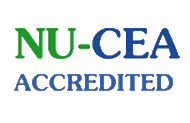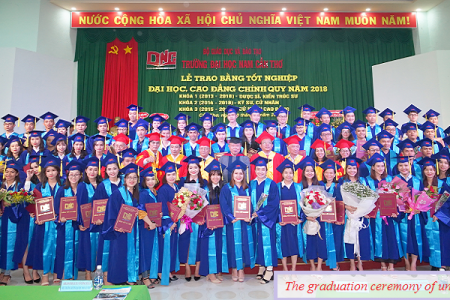Apr 19,2023
Bachelor of Marketing
COURSE DESCRIPTION OF MARKETING
GENERAL STATE LAW
The module provides basic knowledge about the state and law and introduces some basic legal institutions of the legal professions in the Vietnamese legal system.
INTRODUCTION OF LOGICS
The module provides knowledge about basic laws, helping learners to understand thoroughly how to think and argue their own and the opponent's; thereby equipping skills to detect and counter wrong arguments, promptly fight, and contribute to protecting justice and truth.
INTRODUCTION OF SOCIOLOGY
The content of the module consists of 6 chapters, studying the laws and regularities of the formation, movement, and change of relationships and interactions between people and society. The object of study of sociology is the social relations and social interactions expressed through the behavior between people in groups, organizations, and social systems.
Building for students the scientific methodology, scientific thinking, and the foundation of the perception of nature, society, and people of the Communist Party of Vietnam.
APPLIED PSYCHOLOGY IN BUSINESS
Practical Psychology in Business is a socio-economic science subject that studies knowledge of worker psychology, buyer psychology, and communication skills in real business conditions. Currently.
CONSUMER BEHAVIOR
This course provides an overview of consumer behavior and explores the factors that influence the decision-making process of individuals when it comes to purchasing goods and services. Topics covered in the course include Introduction to Consumer Behavior, Consumer Motivation and Perception, Consumer Learning, and Memory, Attitudes and Attitude Change, Group Influence on Consumer Behavior, Individual Differences in Consumer Behavior, and Consumer Decision Making.
BASIC INFORMATICS
The course equips students with basic knowledge about Windows 7 operating system, Windows Explorer management tools, tools to support Vietnamese typing in Windows, Microsoft Word (MS Word) editing tools, basic exercises, and many more. text in MS Word, text formatting, some operations on image objects, manipulation of tables, formatting, and printing in Word, and some advanced features of MS Word. Basic operations on Excel, some basic functions in Excel, basic operations on databases using Excel, creating charts in Excel, formatting, and printing in Excel Excel, some concepts and operations on MS PowerPoint, knowledge of using the Internet and Email.
MICROECONOMICS
The course equips students with basic knowledge of consumer and business decisions about the use of scarce resources, the laws of demand and supply, the workings of markets in balancing supply and demand, the elasticity of consumption use of goods and services, the nature of the firm's cost of production, and its decisions in competitive and monopolistic markets.
MACROECONOMICS
The course equips students with basic knowledge of concepts, and formulas, and how to use formulas to calculate important macroeconomic indicators of the economy. The module also provides students with knowledge about economic equations, economic models, and how to analyze their movements and interactions in the economy in the long run. Finally, students have access to basic economic models to analyze the causes of fluctuations in the economy in the short run.
MARKETING RESEARCH
Marketing Research is a course that provides knowledge about the process of a marketing research project: defining research problems and research design; Sample selection and related problems, data collection process, questionnaire design, data preparation, and data analysis, some marketing research practice cases, and research report writing.
RESEARCH METHODS IN BUSINESS
The course is intended to help students gain an understanding of conducting scientific research. The first part of the module presents an overview of scientific research, how to form research problems, and research design in business administration. The next section will focus on research measurements, sampling methods, data collection, and data analysis. Finally, the module introduces how to develop a research proposal and how to write and present a scientific research report.
ECONOMIC LAW
This subject provides students with basic legal knowledge about types of traders, commercial contracts, forms of dispute resolution, and bankruptcy of enterprises and cooperatives. In particular, the section on enterprise law helps students understand and master the issues of establishment, dissolution, characteristics, and organizational structure of various types of enterprises such as Limited Liability Company, and Joint Stock Company. Partnerships, Private Enterprises. In addition, the issues of entering into a contract, terminating the contract, proposing to enter into a contract, accepting an offer to enter into a contract, and liability for breach of contract are also communicated to students. On the other hand, regulations on commercial dispute settlement in the form of negotiation, conciliation, commercial arbitration, and court are also mentioned.
MANAGEMENT
The Management course equips learners with understanding and basic knowledge about management, management concepts, and necessary skills of managers. The course also deals with the history of the birth and development of management theories and the introduction to the operating environment factors of an organization.
ACCOUNTING PRINCIPLES
The subject equips learners with basic theoretical knowledge and understanding of accounting, as a foundation for applying and studying further professional subjects in the field of business economics such as business administration, finance, banking, accounting, and auditing.
BASIC MARKETING
Basic Marketing provides the most basic knowledge about marketing, the importance of Marketing in businesses, trends of marketing in global trends, environment and information about Marketing, grasping the knowledge of Marketing, biology, etc. Members can segment markets, identify target markets and product positioning, and analyze customer behavior. The course also helps learners to grasp the 4 important mixes in analyzing and building a marketing mix strategy including product, price, distribution, and promotion.
FINANCIAL & MONEY THEORIES
Systematically provide basic knowledge about Money - banking in the market mechanism including Basic issues of money and money circulation, Credit and financial market, System of Commercial banks and credit institutions, Central banks and operations as well as national monetary policies, interest rate basics, Financial and monetary crisis and lessons learned for with Vietnam's banking and financial system, and apply them effectively to economic management practices in Vietnam today.
INTERNATIONAL ECONOMICS
Students will be equipped with an overview of the nature of international trade and international transactions in general in the world. It is beneficial for students not only to be aware of the nature of international transactions but also to understand the nature of comparative and competitive advantages of each country and beyond, the increasingly interdependent nature of international relations, and the growth among countries in the global business strategy.
TAX
Provide learners with general knowledge about Tax, the elements constituting Tax Law in Vietnam; content and calculation of current taxes in the tax system in Vietnam: added value, special consumption, import and export, environmental protection, natural resources, corporate income, personal income and tax administration in Vietnam.
HUMAN RESOURCES MANAGEMENT
Through the course content, learners understand the importance of human resources in organizations, from which students learn specific methods to maintain and use human resources in organizations such as planning, job analysis, recruitment, training, evaluation, motivation, and compensation of workers accordingly.
BUSINESS ANALYSIS
Analysis of business activities (BOD) by specific research methods, helping students understand and properly evaluate production results in terms of volume, and product quality, and see the results and responsibilities of departments. in controlling costs by analyzing product price fluctuations. Analysis of factors affecting profit also shows that the causes of corporate profits increase or decrease according to the objective or subjective trend. Analysis of financial statements of enterprises shows the meaning of the figures on the reports, through the relationship between the items on the balance sheet, it will assess the volatility as well as the capital structure, sources of income, and capital. enterprise capital. The profitability, capital flow, and solvency of the enterprise will also be clarified when analyzing financial statements.
MANAGEMENT ACCOUNTING
Management accounting provides students with specialized knowledge of accounting such as general management accounting issues, cost identification and product costing, forecasting, cost control, and information essential for business decisions, analysis, and forecasting of financial indicators.
BUSINESS COMMUNICATION
Business communication is aimed at achieving three basic goals: the goal of informing, the goal of persuading, and the goal of affirming the views and ideas of individuals and businesses. In today's dynamic working environment, from ordinary employees to senior managers in the enterprise, all need to be trained and improve their communication skills. With the strong explosion of the internet and digital information technology, communication skills (including listening, speaking, reading, writing, and presentation skills...) are considered one of the skills. requires the highest perfection, and determines the advancement of each individual and the success of the enterprise.
BRAND MANAGEMENT
The course equips students with basic knowledge of brand building and management from strategic vision to specific activities. Build a knowledge base based on the main pillars of the brand, understand the role and importance, and how to methodically apply the brand's characteristics to business reality for commercial enterprises.
PROMOTION AND COMMUNICATION MARKETING
Consider the role of promotion and the relationship between promotion strategy and general marketing strategy. Introduce the basic components of promotion management activities as well as the interplay between elements in the promotion program. How to analyze key marketing decisions…
NEGOTIATION TECHNIQUE
This course equips students with business negotiation skills. After completing the course, students will be able to: Recognize the importance of negotiation in business; Understand the principles of business negotiation; Understand some skills and techniques to handle some complicated situations in negotiation.
CORPORATE CULTURE AND BUSINESS ETHICS
Based on knowledge of economics (microeconomics, macroeconomics), learners are equipped with more knowledge about corporate culture and business ethics to have an overview and the nature of operations. business action. This is the basis for both evaluation and effective application in production and business operations.
PUBLIC RELATIONS
The module deals with knowledge about the history of the formation and development of public relations in the world and in Vietnam. The module introduces the concepts, models, and public relations corporations, clarifying the function and role of public relations as well as the process and work of public relations and public information. they; ethical and legal issues that public relations practitioners.
LOCAL MARKETING
This module will introduce students to the importance of marketing at the local level. At the same time, the local marketing analysis model is introduced by Philip Kotler et al. (2002). Based on the theoretical content presented, students will then select and analyze and evaluate resources to serve as a basis for building a local marketing strategy for a type locality.
CUSTOMER RELATIONSHIP MANAGEMENT
The customer relationship management course aims to develop the basic knowledge of organizing and operating customer care activities. Specifically, this subject equips students with basic knowledge about the role and importance of customer relationship management, customer relationship strategy, customer database management, customer relationship management, and customer relationship management. and maintain customer satisfaction. The course also provides knowledge on testing, evaluating, and adjusting customer relationship management activities.
ORGANIZATIONAL BEHAVIOR
The main topics covered in this module include the behavioral science approach, the basis of individual and group behavior, the hierarchy of needs, situational leadership, and style characteristics. leaders, determining leadership effectiveness and effective decision-making.
ART OF LEADERSHIP
This module includes the following basic issues: Objects, tasks, roles of management psychology, nature of management, leadership; Psychological and personality characteristics of the underlings; Psychological laws that leaders need to pay attention to when working with subordinates; Psychosocial characteristics of the labor collective, psychosocial phenomena in the working group, measures to affect employees and the labor collective, conflicts and conflict resolution in the labor collective motion; Functions and forms of communication in management; Psychology with the management and use of people and the work of personnel organization.
INTERNATIONAL BUSINESS
The content of the course is divided into two basic parts: Analyzing the effects of cultural differences in the international business environment and how to manage and control these differences. Analysis of the influence of cultural differences on organizations in global business: culture and business management, its influence and cross-cultural communication. How to manage and control aspects in the global business context due to the influence of cultural differences such as team management, leadership, motivation, decision, negotiation, and business ethics virtue.
INTERNATIONAL PAYMENT
International settlement is the payment of monetary obligations arising in commercial, financial, and other relations between different entities of different countries. The international payment course helps students learn in-depth about the following areas: exchange rates, foreign exchange markets, currency business operations, international payment means, international payment methods international credit.
PRODUCT QUALITY MANAGEMENT
Recognize the importance of product quality in establishing and maintaining a competitive advantage for the entity; Apply quality management measures to bring efficiency to the organization based on the philosophy of improving the quality of people. Build quality management systems to ensure efficiency in production and meet customer requirements. Evaluate the quality and effectiveness of a job they undertake and identify wastes that need to be improved to improve quality.
PROJECT MANAGEMENT
The course helps learners have a clearer view of the importance of project planning and management before actual implementation. In addition, the importance of the subject is to help the project person understand the work they intend to do and predict the risks that may occur when implementing the project.
SALES MANAGEMENT
After completing this module, students can gain knowledge and experience in sales and sales management, the skills needed to become an excellent sales manager; build a proficient and productive sales team; and project force management.
STRATEGIC MANAGEMENT
Strategic management is a discipline that focuses on identifying and understanding the superior resources that bring efficiency to the company. Equip learners with useful theoretical concepts and frameworks for analyzing a company's external and internal environments, and guide learners in formulating and implementing different types of business strategies. Strategic issues are considered from the perspective of an executive or general manager, focusing on how to formulate effective strategies and develop the resources and capabilities needed to achieve them. sustainable competitive advantage in a global and volatile competitive environment.
INTERNATIONAL MARKETING
International marketing will help students understand what international marketing (mainly export marketing) is different from domestic marketing, and what marketing mix for foreign markets has. different from the Mar-mix that SV already knew; to be able to bring products to penetrate foreign markets, how should manufacturers have plans and strategies...
MARKETING MANAGEMENT
Marketing Management is a subject that provides knowledge about the process of analyzing marketing strategies: analyzing the marketing environment; Competitor analysis, and market segmentation, to devise strategies for product development, product positioning, and product management. Methods of managing distribution channels, and integrated marketing communication channels. Methods of evaluating, controlling, and adjusting marketing activities.
E-MARKETING
The course module introduces the importance of Marketing in the digital age. The module focuses on analyzing marketing communication activities with new communication tools such as marketing through search engines, marketing via social networks, email marketing, and mobile marketing... Thereby, students are able to recognize E-marketing tools to apply in the process of planning marketing communication. At the same time can read and analyze the data corresponding to each tool in measuring the effectiveness of Marketing activities
BUSINESS RISK MANAGEMENT
The Business Risk Management module provides foundational knowledge and skills in risk management, analyzing and identifying risks specific to each business, and measuring the impact of risks. risks to the enterprise, develop action plans to control risks and select appropriate funding plans for each type of risk within the allowable scope to ensure the achievement of business objectives and plans.
1. Total credits: 130 crdits
2. Curriculum structure
2.1 General education (39 credits)
- Political science and Philosophy courses: 11 credits
- Social sciences and Humanities: 6 credits
- Compulsory courses (8 credits)
General State Law (2)
Communication in Business (2)
Customer’s behavior (2)
Practical Psychology in Business (2)
- Elective courses (not less than 4 credits)
Introduction of Psychology (2)
Introduction of Sociology (2)
Introduction of Logics (2)
- Foreign language (English): 9 credits
- Mathematics and Computer science courses: 12 credits
Advanced math (3 credits)
Basic Informatics (3 credits)
Probability and Statistics (3 credits)
Econometric (3 credits)
2.2 Specialization courses (91 credits)
Compulsory courses (65 credits)
Macroeconomics (3 credits)
Microeconomics (3 credits)
Principles of economic statistics (3 credits)
Research methods in business (2 credits)
Economic law (2 credits)
School of Management (3 credits)
Basic Marketing (3 credits)
Accounting principles (3 credits)
Financial and monetary theory (3 credits)
Thinking methods and problem-solving skills (3 credits)
The Psychology and Art of Leadership (2 credits)
Research Marketing (3 credits)
Marketing manager (3 credits)
International marketing (3 credits)
Brand management (3 credits)
Marketing training (2 credits)
Trade Marketing (3 credits)
Promotion and marketing communication (2 credits)
Sales Administration (2 credits)
Negotiation skills (2 credits)
Organizing behavior (2 credits)
Corporate culture and business ethics (2 credits)
English for Marketing (3 credits)
E-commerce (2 credits)
Business analysis (2 credits)
Optional courses (not less than 16 credits)
Managing human resources (3 credits)
Management accounting (3 credits)
International economy (3 credits)
Econometric (3 credits)
Tax (3 credits)
Strategic Management (3 credits)
Marketing topics (2 credits)
Public Relations (2 credits)
Local Marketing (2 credits)
Customer relationship management (2 credits)
Agricultural marketing (3 credits)
Bank marketing (3 credits)
Tourism marketing (3 credits)
Simulate business situations (3 credits)
Start a business (3 credits)
International payments (3 credits)
International business (3 credits)
Project management (3 credits)
Product quality management (2 credits)
2.3 Internship and Graduation Thesis (10 credits)
- Internship Project Report (4 credits)
- Graduation thesis (6 credits) or Replacement courses for Thesis (6 credits)
E-Marketing (3 credits)
Risk management in business (3 credits)
Economic forecast (3 credits)
Direct Marketing (3 credits)



